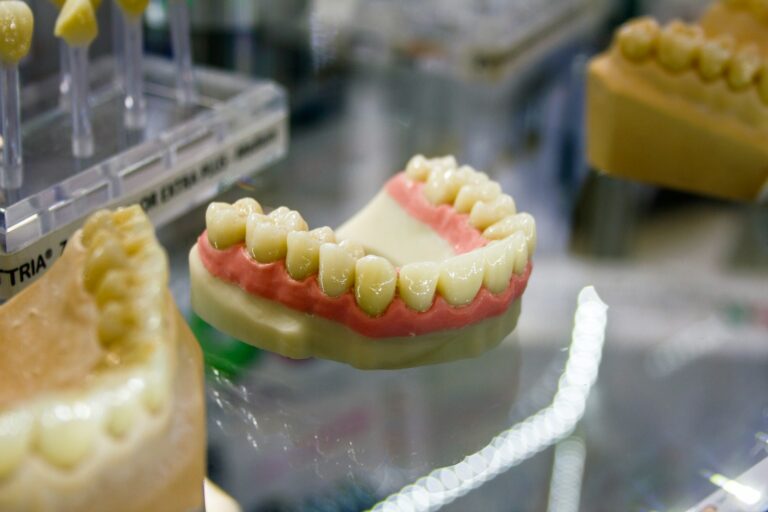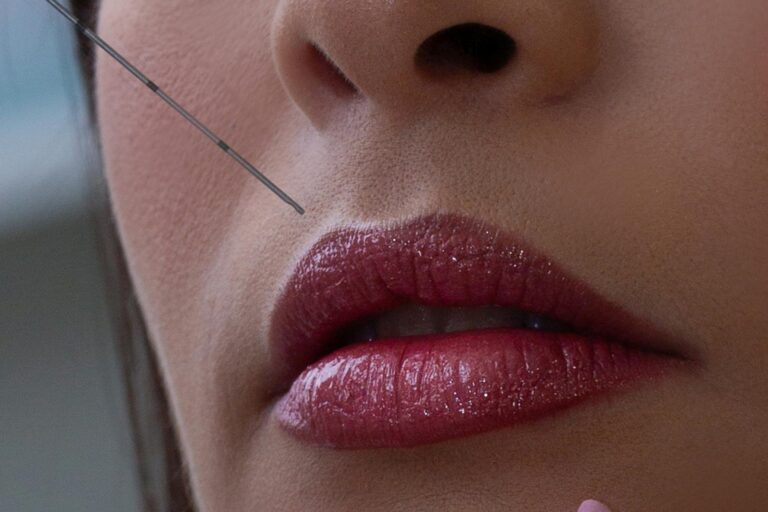
If you’ve ever wanted to know how much does teeth whitening cost, get ready for a bit of a minefield. Teeth whitening costs in the UK vary widely depending on the treatment method.
Whether you’re considering professional dental whitening, at-home kits, or over-the-counter solutions, prices typically range from £5 for basic whitening toothpaste to £700 for comprehensive professional treatments. This complete guide will help you understand your options and their associated costs, so you can make an informed decision about which whitening method best fits your budget and needs.
What Is Teeth Whitening?
Teeth whitening has become a popular cosmetic dentistry procedure designed to brighten smiles by reducing tooth discolouration and enhancing overall aesthetic appeal. This treatment can be particularly beneficial for those seeking to boost their confidence and improve their oral aesthetics, making it a highly sought-after option in dental care.
There are various whitening treatments available, ranging from professional services offered at dental clinics to at-home kits that use bleaching agents such as hydrogen peroxide and carbamide peroxide.
By understanding the process, effectiveness, and safety guidelines associated with these treatments, individuals can make informed decisions about their dental care.
How Is Teeth Whitening Done?
Teeth whitening can be achieved through a variety of methods, each presenting its own set of benefits and levels of effectiveness.
Individuals can choose between professional whitening treatments at a dental surgery or at-home kits that utilise whitening strips, trays, or LED devices. Typically, professional whitening involves the use of higher concentrations of bleaching agents, such as hydrogen peroxide or carbamide peroxide, which tend to deliver quicker and more noticeable results than at-home alternatives.
On the other hand, at-home kits offer convenience and accessibility for those who prefer a do-it-yourself approach to achieving a brighter smile.
1. In-Office Teeth Whitening
In-office teeth whitening is a professional service offered by dental clinics, aimed at delivering immediate and noticeable results through the use of high-concentration bleaching agents, all under the careful supervision of qualified dentists.
The process typically begins with an oral assessment to evaluate the patient’s dental health. After this initial evaluation, a whitening gel is applied, which is then activated by a special light to enhance its effectiveness. Many patients express high levels of satisfaction due to the quick results and the professional guidance they receive throughout the treatment.
During the initial consultation, the dental professional engages in a discussion with the patient to understand their goals, address any concerns, and outline what they can expect during the procedure. This conversation ensures that the process is customised to meet individual needs.
After the assessment, the whitening gel is meticulously applied to the teeth, with professionals often implementing protective measures to shield the gums and surrounding tissues from irritation. The presence of dental experts is essential, not only for safety but also for maximising the results, as they monitor the treatment to achieve the desired level of whitening.
Ultimately, this guided process can lead to lasting brightness, making patient satisfaction a top priority. Many patients choose to maintain their results with follow-up care, ensuring that their smiles remain radiant.
2. At-Home Teeth Whitening
At-home teeth whitening kits offer a convenient and accessible way for individuals to enhance their smiles from the comfort of home, using a variety of products such as whitening strips, trays, and whitening toothpaste. While these options may not deliver results as quickly or dramatically as professional treatments, they can still effectively reduce stains and discolouration over time with consistent use.
It is important to select high-quality products and adhere to the manufacturer’s instructions to ensure safety and maximise effectiveness.
These products cater to a range of preferences, making it easier for users to find a solution that aligns with their lifestyle.
- For example, many people prefer whitening strips for their ease of application and discreetness,
- while custom trays provide a more personalised fit that can deliver targeted results.
- On the other hand, whitening toothpaste can easily be integrated into daily routines, although it may take longer to achieve noticeable improvements.
Ultimately, prioritising product efficacy is essential for achieving that radiant smile that many desire. Concurrently, following safety guidelines helps prevent any potential sensitivity or adverse reactions throughout the whitening process.
How Much Does Teeth Whitening Cost?
Understanding the costs involved in teeth whitening is essential for those considering this cosmetic dentistry option, as prices can vary widely depending on the type of treatment selected, whether it’s professional whitening at dental clinics or at-home kits.
Typically, in-clinic treatments are more costly because they utilise professional-grade products and the expertise of dental professionals. On the other hand, at-home kits present a more budget-friendly alternative, although they may take longer to produce comparable results.
By conducting a thorough cost analysis and price comparison, individuals can make a well-informed decision that aligns with their budgetary needs.
1. In-Office Teeth Whitening Costs
In-office teeth whitening costs can vary widely, typically ranging from £500 to £1,000. Several factors influence this price, including the location of the dental clinic, the expertise of the dentist, and specific patient demographics.
This price usually includes a thorough dental assessment and may fluctuate based on any additional treatments or follow-ups needed for optimal results. It is essential for patients to understand the overall costs and potential consultation fees when considering this professional option.
Pricing can differ significantly from one city to another; dental clinics in urban areas may charge more due to higher overhead costs, while those in rural areas might offer more competitive rates.
The quality of service and the technology employed also play vital roles in determining the final cost. For example, a clinic that utilises advanced whitening systems and offers personalised care may warrant a higher price.
Patients should weigh the long-term benefits and potential savings of investing in professional whitening compared to over-the-counter options, which often provide less satisfying results and may require more frequent reapplications.
2. At-Home Teeth Whitening Costs
At-home teeth whitening solutions are generally more cost-effective than in-office treatments, with prices typically ranging from £20 to £200. This variation depends on factors such as the type of product, brand reputation, and effectiveness.
While these budget-friendly options provide significant convenience, it is important to consider the long-term value of the investment, as the results may take longer to achieve compared to professional alternatives. Consumers should evaluate their options carefully and select products that align with their cosmetic goals and budgetary constraints.
With a wide array of choices available, including whitening strips, trays, gels, and pens, individuals can find a product that meets both their financial and aesthetic needs. However, opting for the lowest-priced option may not always lead to the best results.
Considering factors such as ingredient quality, user reviews, and the brand’s credibility can significantly improve the chances of achieving the desired outcomes.
It is also essential to weigh the convenience offered by these home products against the effectiveness typically provided by dental professionals. Striking a balance between ease of use and reliable results is crucial for a successful whitening experience.
Is Teeth Whitening Worth the Price?
Deciding whether teeth whitening is worth the investment primarily hinges on an individual’s unique cosmetic goals and the expected effectiveness of the treatment.
Many patients express increased satisfaction and confidence following whitening procedures, indicating a significant return on investment, particularly when considering the long-term benefits that enhance oral aesthetics.
By examining the cost analysis of different whitening options and how they correspond with personal expectations, individuals can make informed choices regarding their dental care.
1. Benefits of Teeth Whitening
The advantages of teeth whitening go beyond simply enhancing the colour of one’s teeth; they significantly contribute to improving smiles, boosting confidence, and elevating overall aesthetic appeal. Many individuals report increased self-esteem and a greater willingness to engage in social interactions after undergoing a whitening treatment, which in turn enhances overall satisfaction.
Recognising these psychological and aesthetic benefits can motivate individuals to view teeth whitening as a valuable component of their dental care routine.
When one invests in a brighter smile, it often leads to positive changes in social dynamics. This may include more frequent interactions, better networking opportunities, and an overall sense of approachability. A radiant smile can create a favourable impression, inviting compliments and sparking conversations that might not have occurred otherwise.
As people notice the transformation in their smiles, they may become more proactive in various aspects of their lives, leading to a ripple effect of motivation and self-improvement. Ultimately, the decision to brighten one’s teeth not only enhances physical attractiveness but also significantly impacts psychological well-being, resulting in lasting benefits in both personal and professional realms.
2. Risks and Side Effects of Teeth Whitening
While teeth whitening is generally considered safe, it is important to be aware of the potential risks and side effects associated with the treatment, such as increased tooth sensitivity and concerns regarding enamel safety. These side effects can vary depending on the chosen whitening method. Professional treatments usually minimise risks through expert supervision and guidance.
Therefore, health considerations should be taken into account, and it is advisable for patients to consult with their dentists before proceeding with any whitening treatment.
Understanding these factors is crucial, as the decision between at-home kits and professional procedures can significantly affect the results. For example, while at-home whitening products may provide convenience, they often expose the enamel to harsher chemicals without proper supervision, which could lead to adverse reactions.
On the other hand, a dentist can create a treatment plan tailored to an individual’s dental health, ensuring both aesthetic improvement and the preservation of tooth integrity. Seeking professional advice allows for a thorough discussion of any underlying health concerns, ensuring that the selected method is both effective and safe for long-term oral health.
3. Long-Term Costs of Teeth Whitening
When evaluating the long-term costs of teeth whitening, it is essential to consider maintenance expenses and the necessity for follow-up treatments to maintain the results over time.
Individuals should understand that the effects of whitening can diminish due to various factors, such as dietary habits and the natural ageing process. It is generally advisable to assess one’s smile approximately every six months to determine if a touch-up treatment is warranted.
Some individuals may find it advantageous to utilise at-home whitening products strategically between professional sessions. By recognising that these treatments are not simply a one-time investment but rather a commitment to preserving oral aesthetics, consumers can formulate a flexible plan that meets their needs while effectively managing potential costs.
What Are the Alternatives to Teeth Whitening?
For those who find traditional teeth whitening options unappealing, there are several alternatives that can effectively improve tooth brightness and reduce discolouration. These options range from professional dental cleaning to home remedies and natural whitening methods.
Many people choose these alternatives for various reasons, including budget considerations or concerns about the potential risks and side effects associated with bleaching agents. Gaining an understanding of the effectiveness of these alternatives can offer valuable insights for individuals looking to achieve a brighter smile.
1. Natural Teeth Whitening Methods
Natural teeth whitening methods have become quite popular as effective home remedies for reducing tooth discolouration without resorting to harsh chemicals or bleaching agents. Options like bicarbonate of soda, coconut oil pulling, and hydrogen peroxide can help brighten your smile while also promoting dental care and oral hygiene.
It is crucial to assess the effectiveness and safety of these methods to avoid any potential risks to your enamel and overall oral health.
In recent years, many individuals have sought out these alternative solutions in their pursuit of gentler ways to enhance their dental aesthetics. Bicarbonate of soda, for example, is known for its mild abrasiveness and can effectively remove surface stains. Meanwhile, coconut oil pulling is recognised for promoting overall oral health by reducing bacteria in the mouth.
Hydrogen peroxide, on the other hand, serves as a potent whitening agent; however, it is important to carefully monitor its concentration to prevent sensitivity issues. As with any treatment, users should weigh the potential benefits against possible drawbacks, such as enamel erosion and irritation.
By thoughtfully integrating these natural methods into their dental care routine, individuals can work towards achieving a brighter smile while remaining mindful of their oral health.
2. Over-the-Counter Teeth Whitening Products
Over-the-counter teeth whitening products, such as whitening strips and pens, offer an accessible solution for those seeking to enhance their smile without the need for professional assistance. These products can vary widely in effectiveness, ease of application, and price, making it essential for consumers to engage in thorough product reviews and comparisons to identify what best suits their needs. While these options are convenient, the results may not always align with those achieved through professional treatments.
Along with strips and pens, there are various gels and mouthwashes available that also claim to lighten teeth. Each option comes with its own set of instructions, and it is important to follow these guidelines closely to achieve optimal results.
Pricing can also differ significantly, often influenced by brand reputation and the ingredients used. To ensure a positive experience, users should explore consumer feedback, as these personal insights can provide valuable information regarding effectiveness and ease of use.
By taking the time to understand how different products align with individual preferences, consumers can make informed decisions that lead to a brighter smile tailored to their specific goals.
3. Professional Dental Cleaning
Professional dental cleaning is a commendable alternative to traditional teeth whitening, as it emphasises stain removal and the improvement of overall oral health rather than focusing solely on brightening teeth.
During a professional cleaning, dental hygienists employ specialised tools to effectively eliminate plaque and tartar buildup, which can contribute to tooth discolouration. This treatment not only enhances the appearance of one’s smile but also fosters long-term oral hygiene and health, making it an essential component of a comprehensive dental care routine.
Dental experts typically recommend scheduling regular cleanings every six months. This practice not only helps maintain a radiant smile but also allows for the early detection of potential oral health issues before they escalate.
By prioritising these dental visits, individuals can significantly reduce their risk of developing cavities and gum disease—conditions that may necessitate more invasive and costly treatments in the future.
While whitening treatments can provide quick results, a professional cleaning offers the advantage of enhancing both the aesthetics and overall dental health, ultimately leading to a more confident and healthier smile.
How to Save Money on Teeth Whitening?
Exploring ways to save money on teeth whitening can make this sought-after cosmetic procedure more accessible, helping you achieve the results you desire.
By conducting price comparisons, considering discounts and promotional offers, and reviewing customer feedback, you can discover cost-effective options that fit your budget.
It’s essential to strike a balance between affordability and effectiveness, ensuring that you make a sensible investment in your dental care.
1. Compare Prices
One of the most effective strategies for saving money on teeth whitening is to compare prices across various treatments and products. This enables consumers to make informed decisions that align with their budget and individual needs.
In today’s market, there are numerous options available, ranging from in-practice procedures to at-home kits, each differing significantly in cost. By taking the time to explore these alternatives, individuals can discover treatments that not only fit their financial parameters but also deliver impressive results.
Additionally, analysing promotions or discounts offered by dental practices can lead to even more substantial savings.
Investing time in understanding one’s choices allows individuals to prioritise both affordability and quality, ensuring that the path to a brighter smile remains both economical and effective.
2. Consider Insurance Coverage
Considering dental insurance coverage can have a significant impact on the overall costs of teeth whitening, as some policies may provide partial reimbursement for specific whitening treatments. By reviewing your coverage options and discussing them with your dentist, you can navigate financial planning more effectively and identify which treatment options may be eligible for support. This approach can make the process more affordable while allowing you to achieve your cosmetic goals.
Understanding the intricacies of dental insurance is crucial for anyone contemplating a whitening treatment. Many individuals overlook the specifics of their insurance policies, which can result in unexpected out-of-pocket expenses. Dental providers often possess valuable insights regarding which services may be covered and can assist individuals in maximising their benefits. This conversation also presents an excellent opportunity to discuss any upcoming treatments while establishing a budget that enables you to achieve a brighter smile without straining your finances.
By approaching the planning stage with a clear understanding of available resources, patients can make more informed decisions about their oral care and aesthetic aspirations.
3. Look for Deals and Discounts
Monitoring deals and discounts on teeth whitening services and products can significantly increase your chances of saving money while achieving your desired results. Many dental practices provide promotional offers or seasonal discounts to attract consumers, so it can be beneficial to sign up for newsletters or follow them on social media for the latest updates. Identifying these opportunities allows you to make budget-friendly choices without compromising on quality.
Additionally, many brands frequently run limited-time promotions or bundle deals that enable you to purchase their teeth whitening kits at a much lower price. Participating in online forums and communities focused on dental care can also reveal user-generated discounts and helpful tips.
It’s crucial to pay attention to trends in consumer behaviour, as individuals often share their experiences with discounts on social media platforms, making it easier to stay informed about the best offers available. By actively seeking out these promotional opportunities, you can achieve whiter teeth while keeping your finances well managed.
4. Maintain Good Oral Hygiene
Maintaining good oral hygiene is one of the most effective approaches to prevent tooth discolouration and reduce the need for expensive whitening treatments in the future.
Incorporating proper oral care habits into your daily routine is essential for protecting that pearly white smile. Brushing twice a day with fluoride toothpaste effectively removes surface stains, while daily flossing eliminates food particles and plaque between teeth, areas that brushes often miss. Additionally, rinsing with an antibacterial mouthwash can further decrease the growth of bacteria responsible for staining.
Regular visits to the dentist for professional cleanings also play a crucial role in keeping that bright smile intact.
By embracing these practical tips, individuals can not only safeguard their dental investment but also enjoy a vibrant, healthy smile for years to come.
Frequently Asked Questions
What factors contribute to the cost of teeth whitening?
The cost of teeth whitening can vary depending on several factors, including the type of treatment, the severity of discoloration, and the location of the dental clinic.
Is professional teeth whitening more expensive than at-home treatments?
Yes, professional teeth whitening at a dental clinic is typically more expensive than at-home treatments. This is due to the use of specialised equipment and the expertise of a trained professional.
Are there any potential risks or side effects associated with teeth whitening?
While teeth whitening is generally considered safe, some people may experience temporary tooth sensitivity or gum irritation. It is important to consult with a dentist before undergoing any whitening treatment to ensure it is suitable for your specific needs.
Is it worth paying more for professional teeth whitening?
Professional teeth whitening treatments are often more effective and longer-lasting than at-home treatments. If you want noticeable and long-lasting results, it may be worth the higher cost of professional whitening.
Are there any affordable options for teeth whitening?
Yes, there are several affordable options for teeth whitening, such as whitening toothpaste and at-home whitening kits. However, these may not be as effective as professional treatments and may need to be used more frequently to maintain results.
How can I reduce the costs of teeth whitening?
You can reduce the costs of teeth whitening by discussing payment plans or financing options with your dentist, comparing prices between different dental clinics, or opting for at-home treatments instead of professional treatments.





